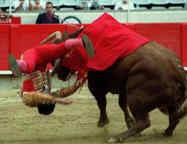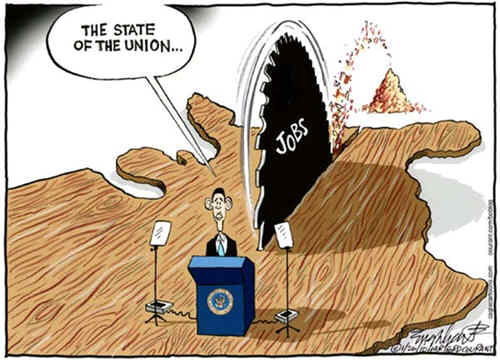Stock Market Investor Fears Over China and Re-regulation
Stock-Markets / Stock Markets 2010 Jan 27, 2010 - 08:51 AM GMTBy: PaddyPowerTrader
 US stocks fell Tuesday, erasing gains in the session’s final hour, as concern the Federal Reserve may signal more plans to unwind stimulus measures overshadowed higher-than-estimated earnings from Apple, Tellabs, Travelers etc and a jump in consumer confidence. JP Morgan slid 2% to lead declines in the Dow. Verizon Communications shed 1.7%, while US Steel plunged 12% on a wider-than-estimated loss and the prospect of diminished demand from China. Benchmark indexes extended declines as Elliott Wave International CEO Robert Prechter said a new bear market may have begun.
US stocks fell Tuesday, erasing gains in the session’s final hour, as concern the Federal Reserve may signal more plans to unwind stimulus measures overshadowed higher-than-estimated earnings from Apple, Tellabs, Travelers etc and a jump in consumer confidence. JP Morgan slid 2% to lead declines in the Dow. Verizon Communications shed 1.7%, while US Steel plunged 12% on a wider-than-estimated loss and the prospect of diminished demand from China. Benchmark indexes extended declines as Elliott Wave International CEO Robert Prechter said a new bear market may have begun.
Asian stocks fell for an eighth day, the longest streak since May 2005, as declines by mining shares on lower commodity prices overshadowed gains among companies whose profits are least tied to the economic cycle. BHP Billiton sank 2% in Sydney. Toyota fell 3.6% in Tokyo after saying it will halt US sales of models involved in a recall.
Risk hangs at a vital juncture. Not including the current episode, we have had five corrections in the S&P 500 since the rally began in March. These have averaged -5.8%. The current correction stands at a -5.2% move so now we have to decide whether we think this is just another correction in the relatively smooth rally, or something more pernicious. I favour the latter. The ducks are starting to line up; the tightening in China, the political concerns in the US (keep an eye on Geithner’s testimony later today), the signs that some data, such as housing, is rolling over and the huge decrease in positive surprises from other data and underlying all of this the concerns about sovereign risk. The emergence of all these issues at the same time argues for something more than a standard correction I think and I am very comfortable a call that the S&P 500 is set to push down to around 1000 going forward. Whether the correction then becomes more serious than that will depend on whether weak CDS vigilantes are replaced by strong bond vigilantes.
Today’s Market Moving Stories
- The Bank of England’s (BoE) Sentence sounded hawkish, saying it will be difficult to keep inflation on target, given above-target services inflation and rising import prices. Also labour market slack may be less than in the 80s, 90s. He stressed that the BoE must be ready to adapt its policies.
- ECB’s Weber confirmed that the ECB will continue to remove unconventional measures gradually to make the overnight rate trend higher over the year. He also said that ECB macro forecasts are subject to upside risks but added that the economy will need fiscal and monetary support for large part of this year.
- The German Government raised growth projections to 1.4% for this year from 1.2% forecast at the end of Q3 2009.
- The FT quotes “people familiar with the issue” as saying that Goldman Sachs has been promoting a Greek bond sale of up to €25bn to Beijing and the State Administration of Foreign Exchange. However, “people close to Safe” tell the paper that China already holds a “significant amount” of Greek debt and is wary of adding to it. Nevertheless, the paper says that a deal of between €5bn – €10bn appears possible after a second trip by Goldman Sachs chief operating officer Gary Cohn to Athens. The Greek finance ministry has denied the story and their bonds are getting whacked, again. Finance minister George Papaconstantinou said that he will visit China on a road show next month, but “no target is set” for a debt placement.
- Eurogroup chairman Jean-Claude Juncker said that he is dissatisfied with the undervaluation of the CNY and the USD. He also says that Europe must be more attentive to the EUR’s exchange rates.
- The Securities Times quoted an unnamed source as saying that Chinese regulators have ordered banks to call back some of the loans they extended in January. It says that commercial banks that have issued large amounts of loans this month have been instructed not only to halt new lending but also to recall already-issued loans as soon as possible. The report says that the move means that the new loan total for January will fall well below market expectations.
- Japanese December exports rose 12.1% YoY (compared to forecasts of a 7.6% increase). The move is driven by a rise in demand from Asia, which took in more than half of total exports in the month. Exports to China rose 42.8% YoY while shipments to the United States fell 7.6%.
- US Senate majority leader Reid is to call a vote to deal with the procedural issues that sit in the way of Bernanke’s reconfirmation (the way which the political process works means it’s these hurdles that get Bernanke back in rather than a direct vote on his chair). Officials said it looks likely that the 60 votes required will now be found and that a Bernanke vote will be held straight after the procedural vote. In other words it looks like this should be done and dusted in the next couple of days.
- ECB president Trichet gave a cautious welcome to the Obama/Volcker bank plan, commenting that it was in the right direction. However he urged the proposals were coordinated at a global level such that banks couldn’t find their way around any new US rules. Certainly, though, the plans were on the same lines as the ECB’s thinking. Whither the PIGS (Portugal, Italy, Greece and Spain).
- The UK’s Daily Telegraph picks up on warnings from the IMF that banks must raise vast amounts more in capital if a second financial crisis is to be avoided. Its global financial stability report said banks have not yet rebuilt their balance sheets sufficiently and are hence vulnerable to shocks. Note that this makes for great headlines and is certainly timely heading into the Davos conference, but actually it’s part of a consistent and continuous message from a variety of official sources.
 Nouriel Roubini now gets really gloomy about the Eurozone saying that Spain poses a looming threat to the euro region holding together. For all the focus on Greece, Spain could become a bigger threat to the euro zone because it’s the region’s fourth-largest economy and has higher unemployment and weaker banks. Roubini suggests that down the line the euro zone could split up into a strong center and a weaker periphery with some countries to exit monetary union altogether. Zapatero has not yet prepared the Spanish for austerity measures. There is no way out of this crisis other than through a fall in wage costs, which could restore Spain’s competitiveness, but this would require a fall in payroll taxes, lower income taxes, and a fall in a real earnings – none of which is on the political agenda in the country. Otherwise Spain risks being trapped in a spiral of decline.
Nouriel Roubini now gets really gloomy about the Eurozone saying that Spain poses a looming threat to the euro region holding together. For all the focus on Greece, Spain could become a bigger threat to the euro zone because it’s the region’s fourth-largest economy and has higher unemployment and weaker banks. Roubini suggests that down the line the euro zone could split up into a strong center and a weaker periphery with some countries to exit monetary union altogether. Zapatero has not yet prepared the Spanish for austerity measures. There is no way out of this crisis other than through a fall in wage costs, which could restore Spain’s competitiveness, but this would require a fall in payroll taxes, lower income taxes, and a fall in a real earnings – none of which is on the political agenda in the country. Otherwise Spain risks being trapped in a spiral of decline.- A majority of financial industry bosses don’t expect to see a “serious” global economic recovery until 2012 at the earliest, according to consulting firm Oliver Wyman.
- European regulators would find it harder to reduce the size of lenders they consider too big to fail than their U.S. counterparts because banks in the region are relatively far bigger than their home economies, Goldman Sachs said. Credit Suisse, Danske Bank and BNP Paribas are among nine European banks whose assets are larger than their home economies. The most likely scenario is for Europe to stay on the current path of regulatory change – introducing more demanding capital, liquidity and risk metrics.

Economic Events To Look Out For Today
The US FOMC and Obama’s State of Union address take centre stage today. I see no change in the Fed’s guidance about low rates for an extended period, and expect none until there is a discernible shift in one or more of the Fed’s guiding variable (low rate of resource utilization, subdued inflation trends, and stable inflation expectations). No change is expected either regarding the growth outlook or the other policy tools. While there is logic to increasing the discount rate (separating monetary policy and liquidity policy) and some talk of moving from a Funds target to a target for the interest paid on reserves, the Committee is unlikely to announce such changes without thoroughly communicating to the market beforehand. Risk markets would normally welcome a steady Fed but it is harder to judge the reaction today given that the FOMC will be overshadowed by the President’s State of the Union address. Recent proposals to curb bank risk-taking have been poorly received by the markets and in turn upped the ante on tonight’s address. Any support to risk markets from an accommodative Fed could be quickly undone by a speech that fails to dampen investor’s growing concerns with market unfriendly populism and potential protectionism.
A Ratings Downgrade Coming For Portugal
The main news from the outline budget last night was the restatement of the 2009 deficit to 9.3% of GDP. This compares to market expectations of 8.7% – 9.0%, the last official estimate of 5.9% and IMF and European Commission estimates of 8% of GDP, so comes as bad news on top of low expectations. There also appears to be a reliance on GDP growth to help them out – the government is estimating 0.7% compared to a Commission estimate of 0.3%. I think that a Moody’s downgrade (from A2) is likely in the coming days/weeks. Fitch also warned that Portugal remains on negative watch and a “downgrade is more likely than not”. So more bad news for the Euro.
Company News
- Toyota is racing to stem widening quality concerns, is halting production and U.S. sales of eight models including its top-selling Camry and Corolla cars because of a component that led to a 2.3 million vehicle recall.
- Tullow Oil announced this morning that they are to place 80.4m shares or 10% of its existing share capital with new and existing institutional investors to fund growth in Uganda and Ghana and maintain its exploration. Tullow are likely to have little difficulty placing the shares. On January 9th it placed shares totalling 9.1% of existing capital and the stock initially sold off only to finish the day approx 10% off its lows. Only yesterday Tullow Oil signed an agreement to buy Ugandan interests from Heritage. The group has never been in a better position to deliver growth and create opportunities.
- Spanish banks getting smashed today after BBVA’s appalling results. A headline profit of just €31mln in Q4 2009, well below analysts’ estimates of €1.05bn. Full-year profit is €4.21bn down by almost 25% year-on-year. Main drivers of the weak looking bottom line in Q4 were a massive goodwill writedown and additional provisions for Spanish real estate.
- Trade unions announced yesterday that Fiat will shut down its six car plants in Italy for two weeks at the end of February because of “poor sales figures in January”. This is hardly surprise given CEO Marchionne’s pessimism about the prospects for the Western European car market in 2010 at this week’s results announcement.
- German business software company SAP said Q4 net profit declined 12% but it expects sales and margins to grow in 2010. Net profit for the quarter ending December 31 was €727 million compared with €830 million in the same period a year earlier.
- STMicro’s Q4 loss narrowed on higher sales and prior-year items, and posted an operating profit excluding restructuring costs. The loss extended STMicro’s string of quarterly losses to two years, but the company forecast first-quarter revenue above Wall Street’s expectations.
- Apple’s Steve Jobs will try to persuade investors and customers today that tablet computers are as desirable as the company’s iPhone and iPod music player. The chief executive officer speaks at a press conference today in San Francisco, where he will announce “a major new product that we’re really excited about,” he said this week in a statement with Apple’s earnings.
And Finally… iPhoning
Funny bloke decides to try and get rich by making a killer iPhone app. Apple rejects most of funny bloke’s ideas until he finally manages to launch the racy Peek-a-boo, an app which took off in Japan and earned him a fairly hefty amount of money. In this video, he explains how.

Disclosures = None
By The Mole
PaddyPowerTrader.com
The Mole is a man in the know. I don’t trade for a living, but instead work for a well-known Irish institution, heading a desk that regularly trades over €100 million a day. I aim to provide top quality, up-to-date and relevant market news and data, so that traders can make more informed decisions”.© 2010 Copyright PaddyPowerTrader - All Rights Reserved
Disclaimer: The above is a matter of opinion provided for general information purposes only and is not intended as investment advice. Information and analysis above are derived from sources and utilising methods believed to be reliable, but we cannot accept responsibility for any losses you may incur as a result of this analysis. Individuals should consult with their personal financial advisors.
PaddyPowerTrader Archive |
© 2005-2022 http://www.MarketOracle.co.uk - The Market Oracle is a FREE Daily Financial Markets Analysis & Forecasting online publication.



